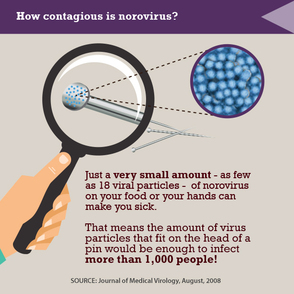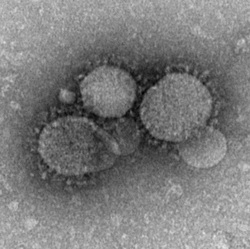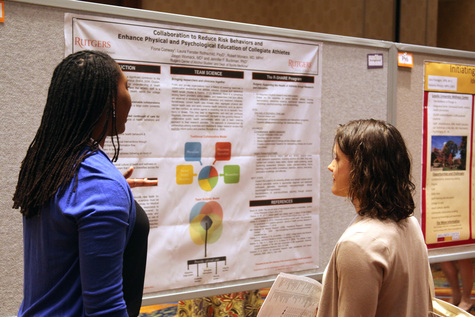Our sections have been busy in the past several months, conducting projects, trying new things at the 2014 Annual Meeting, and compiling resources for you! Here’s what they’ve been up to:
Administration: The ACHA Administration Section tried something new with the Hot Topics Session at the 2014 Annual Meeting. In the past, the Hot Topics session has been an open forum for discussion, often in groups, but there has been no over-arching topic. This year, the session began with a lecture-style presentation in the first half and then utilized the group format to allow participants to discuss, debate, and exchange ideas regarding the program topic.
Advanced Practice Clinicians: APC Section leaders recently complied members’ campus quality improvement initiatives and projects. The list is available on the APC Section homepage and can be used as a resource to help other college health professionals develop QI projects. This is an on-going project, and you are encouraged to share your own experiences with QI. Email [email protected] if you have something to share.
Clinical Medicine: Clinical Medicine Section members have recently put together a draft version of a clinical medicine competences document in response to a suggestion at the 2013 section meeting in Boston. Competencies include current medical knowledge, technical abilities, and clinical reasoning related to the topical areas identified. The most recent draft of the Clinical Medicine Section Core Competencies document [pdf], compiled by Brooke Durland, MD ([email protected]), is now available. Section members’ feedback is welcome! Please send feedback to Brooke Durland or Jessica Higgs ([email protected]).To view the document visit the Clinical Medicine Section homepage.
The Clinical Medicine Section also conducted a webinar, Update on Meningococcal Disease. The live webinar took place on April 16, 2014, with every available space occupied. The archived version is available on the ACHA website and continuing education is available.
Health Promotion: The Health Promotion Section conducted a webinar, Using Social Media: A Review and How to Evaluate It, in February 2014. The live webinar filled to capacity, and the archived version will be available until December 31, 2015. Continuing education is available; click the link above for more information.
In May of 2014 the Health Promotion Section released the Second Edition of the Guidelines for Hiring Health Promotion Professionals in Higher Education. These guidelines encourage colleges and universities to hire the most qualified staff for their health promotion positions. The Second Edition of the guidelines align with ACHA’s Standards of Practice for Health Promotion in Higher Education, as well as those from the Council for the Advancement of Standards in Higher Education (CAS) and Accreditation Association for Ambulatory Health Care (AAAHC).
Mental Health: Staying up to date with the Mental Health Section is easy with the Google® Group for College Mental Health Professionals. This group has been initiated to provide a place for college mental health professionals to communicate with others in their field to share, support, initiate, and expand ideas in a general forum. To register for the group, please click here.
Nurse-Directed Health Services: The Nurse-Directed Section conduced their first webinar Update on Anaphylaxis for College Health Clinicians in February 2014. The webinar is archived, and continuing education is available; click the link above for more information.
The Nurse-Directed Section has also compiled a standards of practice and policy and procedures database on the ACHA website. Click here to view the database. If you have something to share, contact Rachel Mack at [email protected].
Nursing Section: For the first time, the Nursing Section hosted a networking and discussion session at the 2014 Annual Meeting, and it was a huge hit! Nurses from all sections were invited to join their colleagues to talk about current issues and practices in the college health nursing field, splitting into groups to discuss one of four main discussion topics: clinical nursing; staffing, workflow, and personnel; college health nursing practice standards; and flu vaccine programs and other immunizations. This was an informal and flexible session, so participants could move from group to group.
Pharmacy: The Pharmacy Section covered how to hold a Drug Take Back Event in conjunction with the DEA at its Hot Topics: Pharmacy session (Session: TH3-302) in San Antonio. If you are interested in holding a Drug Take Back Day, the presentation is available on the ACHA website. Other topics the section touched upon at the meeting that section leaders hope to follow up on in the next year include smart pharmacy design, ways to combat outsourcing of pharmacy services, and development of strategic plans.
Administration: The ACHA Administration Section tried something new with the Hot Topics Session at the 2014 Annual Meeting. In the past, the Hot Topics session has been an open forum for discussion, often in groups, but there has been no over-arching topic. This year, the session began with a lecture-style presentation in the first half and then utilized the group format to allow participants to discuss, debate, and exchange ideas regarding the program topic.
Advanced Practice Clinicians: APC Section leaders recently complied members’ campus quality improvement initiatives and projects. The list is available on the APC Section homepage and can be used as a resource to help other college health professionals develop QI projects. This is an on-going project, and you are encouraged to share your own experiences with QI. Email [email protected] if you have something to share.
Clinical Medicine: Clinical Medicine Section members have recently put together a draft version of a clinical medicine competences document in response to a suggestion at the 2013 section meeting in Boston. Competencies include current medical knowledge, technical abilities, and clinical reasoning related to the topical areas identified. The most recent draft of the Clinical Medicine Section Core Competencies document [pdf], compiled by Brooke Durland, MD ([email protected]), is now available. Section members’ feedback is welcome! Please send feedback to Brooke Durland or Jessica Higgs ([email protected]).To view the document visit the Clinical Medicine Section homepage.
The Clinical Medicine Section also conducted a webinar, Update on Meningococcal Disease. The live webinar took place on April 16, 2014, with every available space occupied. The archived version is available on the ACHA website and continuing education is available.
Health Promotion: The Health Promotion Section conducted a webinar, Using Social Media: A Review and How to Evaluate It, in February 2014. The live webinar filled to capacity, and the archived version will be available until December 31, 2015. Continuing education is available; click the link above for more information.
In May of 2014 the Health Promotion Section released the Second Edition of the Guidelines for Hiring Health Promotion Professionals in Higher Education. These guidelines encourage colleges and universities to hire the most qualified staff for their health promotion positions. The Second Edition of the guidelines align with ACHA’s Standards of Practice for Health Promotion in Higher Education, as well as those from the Council for the Advancement of Standards in Higher Education (CAS) and Accreditation Association for Ambulatory Health Care (AAAHC).
Mental Health: Staying up to date with the Mental Health Section is easy with the Google® Group for College Mental Health Professionals. This group has been initiated to provide a place for college mental health professionals to communicate with others in their field to share, support, initiate, and expand ideas in a general forum. To register for the group, please click here.
Nurse-Directed Health Services: The Nurse-Directed Section conduced their first webinar Update on Anaphylaxis for College Health Clinicians in February 2014. The webinar is archived, and continuing education is available; click the link above for more information.
The Nurse-Directed Section has also compiled a standards of practice and policy and procedures database on the ACHA website. Click here to view the database. If you have something to share, contact Rachel Mack at [email protected].
Nursing Section: For the first time, the Nursing Section hosted a networking and discussion session at the 2014 Annual Meeting, and it was a huge hit! Nurses from all sections were invited to join their colleagues to talk about current issues and practices in the college health nursing field, splitting into groups to discuss one of four main discussion topics: clinical nursing; staffing, workflow, and personnel; college health nursing practice standards; and flu vaccine programs and other immunizations. This was an informal and flexible session, so participants could move from group to group.
Pharmacy: The Pharmacy Section covered how to hold a Drug Take Back Event in conjunction with the DEA at its Hot Topics: Pharmacy session (Session: TH3-302) in San Antonio. If you are interested in holding a Drug Take Back Day, the presentation is available on the ACHA website. Other topics the section touched upon at the meeting that section leaders hope to follow up on in the next year include smart pharmacy design, ways to combat outsourcing of pharmacy services, and development of strategic plans.




 RSS Feed
RSS Feed